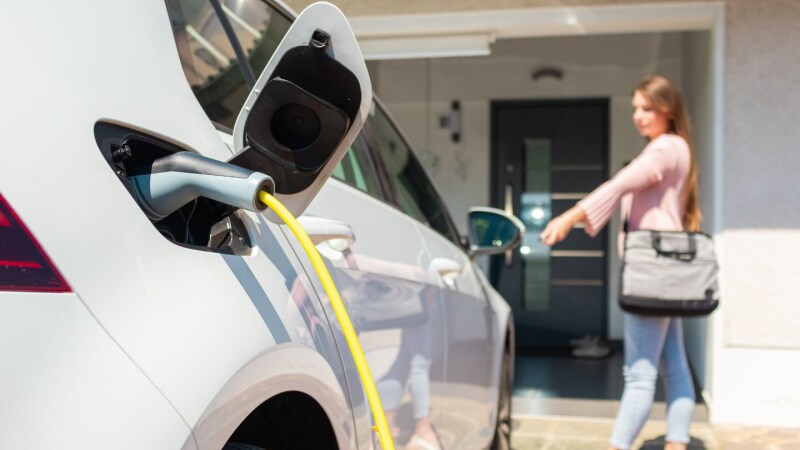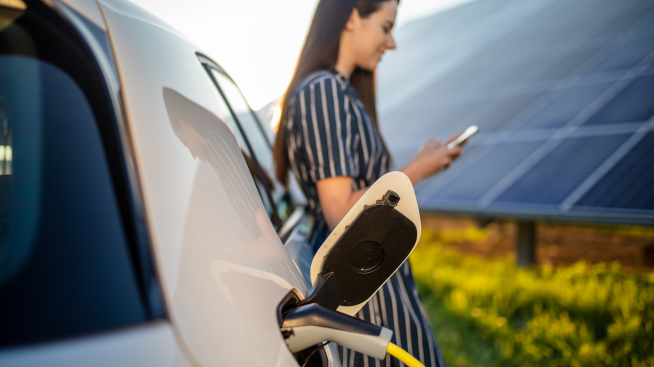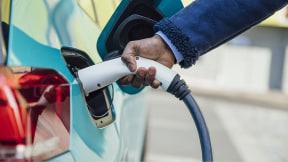EV battery replacement: What you need to know

Electric vehicle (EV) sales have been on the rise in recent years, with estimates predicting global sales will increase 21% in 2024 to 16.7 million. Despite this growth, there are still misconceptions around the cost and maintenance of EVs.
Recent surveys show that concerns over the cost of battery replacement was one of the top three barriers to purchase. Many consumers don’t realize, however, that battery replacements are quite rare — and, even if they are needed, there are affordable options.
Below is a break down what you need to know about EV battery replacement.
How often do EV batteries need to be replaced?
The short answer is not often. Modern EV batteries should last between 12 to 15 years in moderate climates or between 100,000 and 200,000 miles. To put those numbers into perspective, Americans keep their cars for an average of about eight years. This means EV batteries will likely outlast the average ownership of the vehicle.
Some models experienced major recalls that required battery replacements in recent years. But aside from these models, just 1.5% of EVs have had their batteries replaced.
EV batteries are built to last longer than the lithium-ion batteries in our phones or laptops. They’re made using complex battery management systems (BMS) that monitor how the battery is charged and used to extend its lifespan.
How much does it cost to replace an EV battery?
It’s not surprising that the cost of EV batteries would give potential customers pause. New EV batteries are estimated to cost anywhere between $2,500 and $20,000. The high price is due to the expensive materials needed to build the batteries. However, battery prices are predicted to decrease in 2024, since lithium prices are expected to drop.
Fortunately, EV manufacturers must offer a battery warranty of at least eight years, or 100,000 miles, per federal law. In California, manufacturers are required to offer 10 years, or 150,000 miles, of coverage.
Most warranties will cover the full cost of the battery replacement, but some manufacturers will only replace the battery if it stops working on its own. This may not include damage caused by flooding, fires or vandalism.
Some manufacturers will replace a battery under warranty if the capacity percentage dips below a specific threshold — even if the battery still technically works.
Avoid replacement with proper EV battery care
Even though EV batteries are built to last for at least a decade, here are a few ways to help protect and prolong their performance and durability:
- Avoid extreme temperatures. Extreme heat or intense cold can degrade an EV battery. If possible, it’s best to keep your EV in a climate-controlled garage.
- Don’t let the battery drop to zero. EV batteries perform best when maintained between 20% and 80% of their maximum charge, similar to how car engines operate best when their gas is filled between 25% to 75%. This also means avoiding charging your EV battery to 100%.
- Plan ahead. If you know you’ll be away from your EV for a while, don’t leave the battery with an empty or full charge, as this can also contribute to its degradation.
- Limit DC fast charging. While this type of charging — which allows you to quickly charge your vehicle away from home — is great for road trips, it’s not ideal for battery life. Try to limit DC fast charging for travel or emergencies.
- Monitor your driving habits. Accelerating, especially in cold temperatures, can have a negative impact on battery life.
In summary
Although concern around battery replacement is one of the top reasons consumers haven’t purchased an EV, battery replacements are infrequent — most EV batteries will last longer than the average person keeps their car. However, if a battery replacement is necessary, manufacturers’ warranties will most likely cover the costs. There are also many ways to care for an EV battery to help prolong its lifespan.



